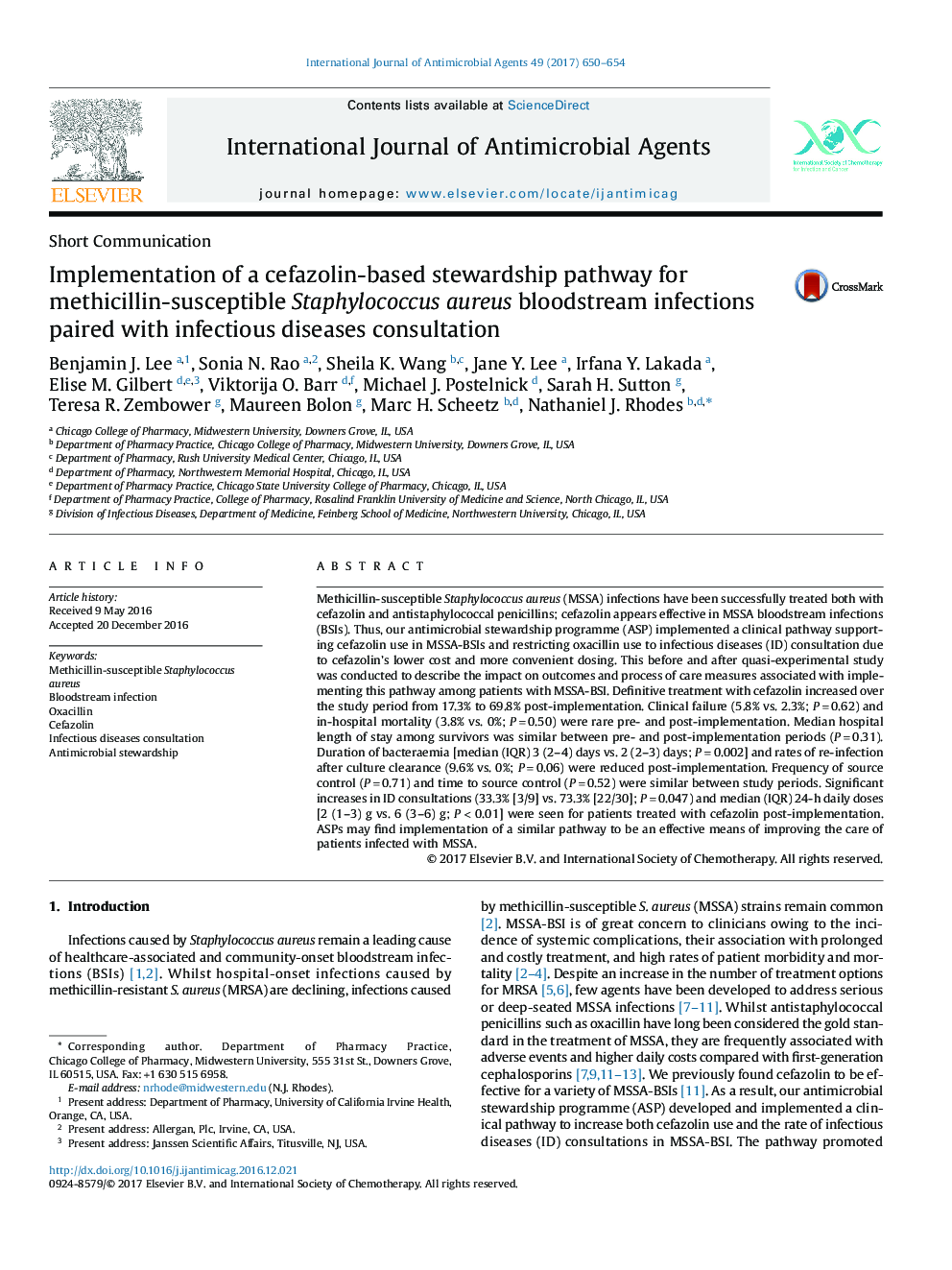| Article ID | Journal | Published Year | Pages | File Type |
|---|---|---|---|---|
| 5667039 | International Journal of Antimicrobial Agents | 2017 | 5 Pages |
â¢Staphylococcus aureus is a frequent cause of community and nosocomial infections.â¢We implemented a beta-lactam therapeutic interchange protocol for MSSA-BSIs.â¢Duration of hospital stay, time to source control, and severity of illness were all similar pre- and post-implementation.â¢We observed shorter durations of bacteraemia and higher rates of infectious diseases specialist post-implementation.
Methicillin-susceptible Staphylococcus aureus (MSSA) infections have been successfully treated both with cefazolin and antistaphylococcal penicillins; cefazolin appears effective in MSSA bloodstream infections (BSIs). Thus, our antimicrobial stewardship programme (ASP) implemented a clinical pathway supporting cefazolin use in MSSA-BSIs and restricting oxacillin use to infectious diseases (ID) consultation due to cefazolin's lower cost and more convenient dosing. This before and after quasi-experimental study was conducted to describe the impact on outcomes and process of care measures associated with implementing this pathway among patients with MSSA-BSI. Definitive treatment with cefazolin increased over the study period from 17.3% to 69.8% post-implementation. Clinical failure (5.8% vs. 2.3%; Pâ=â0.62) and in-hospital mortality (3.8% vs. 0%; Pâ=â0.50) were rare pre- and post-implementation. Median hospital length of stay among survivors was similar between pre- and post-implementation periods (Pâ=â0.31). Duration of bacteraemia [median (IQR) 3 (2-4) days vs. 2 (2-3) days; Pâ=â0.002] and rates of re-infection after culture clearance (9.6% vs. 0%; Pâ=â0.06) were reduced post-implementation. Frequency of source control (Pâ=â0.71) and time to source control (Pâ=â0.52) were similar between study periods. Significant increases in ID consultations (33.3% [3/9] vs. 73.3% [22/30]; Pâ=â0.047) and median (IQR) 24-h daily doses [2 (1-3) g vs. 6 (3-6) g; P < 0.01] were seen for patients treated with cefazolin post-implementation. ASPs may find implementation of a similar pathway to be an effective means of improving the care of patients infected with MSSA.
